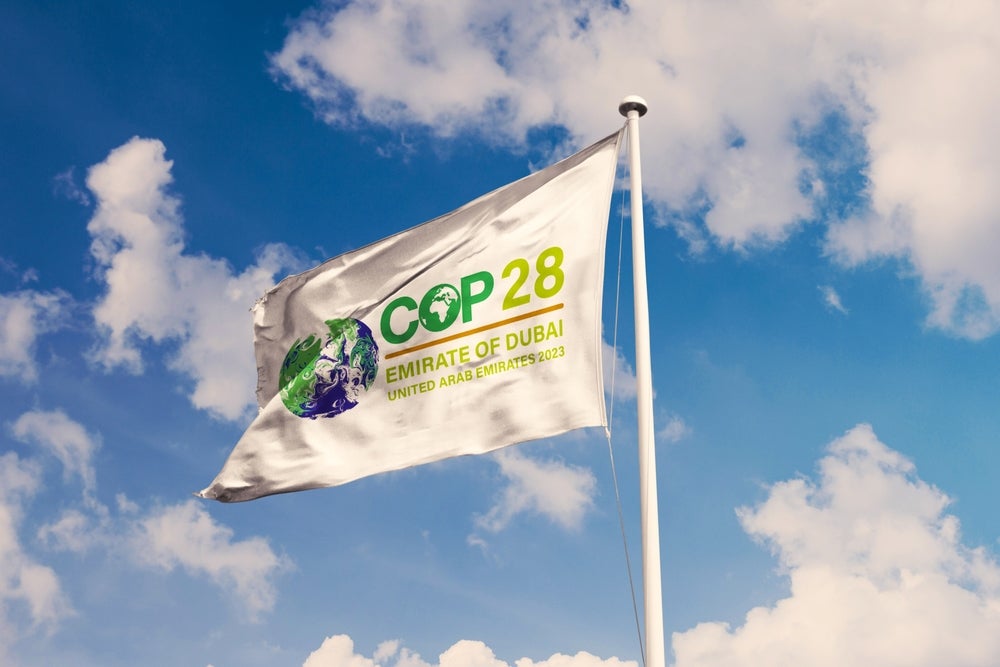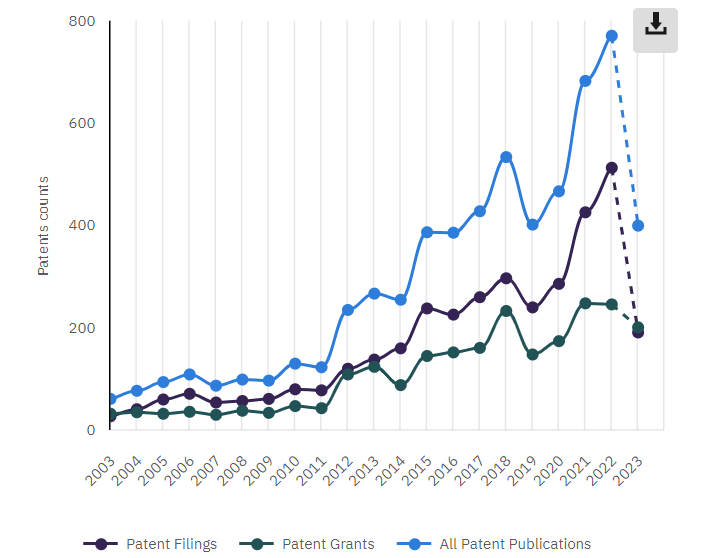
In an open letter to all G20 leaders, the businesses, which included apparel brands and retailers such as sports brand Decathlon, secondhand retailer eBay and outerwear brand Mammut Sports – called on the group to take action at COP28.
Last year (2022) almost seven times more companies signed the letter, including leading apparel brands and retailers such as H&M Group, along with a number of other global organisations.

Discover B2B Marketing That Performs
Combine business intelligence and editorial excellence to reach engaged professionals across 36 leading media platforms.
In this year’s letter the co-signees asked all leaders attending COP28 to lay the groundwork to transition towards a full phase-out of unabated fossil fuels and halve emissions within a decade.
Other measures requested by the group include a commitment to reaching 100% decarbonised power systems by 2035 in advanced economies and by 2040 in other countries; ensuring clear pricing signals by repurposing fossil fuel subsidies towards energy efficiency; and supporting countries in the global south in diversifying their energy systems.
The letter reads: “As energy purchasers and users in the global system, we have an important role to play in sending a clear signal about our future energy use, which is rapidly becoming cleaner through renewables. We are taking action and working toward phasing out our use of fossil fuels. That is why we are setting science-based targets, developing climate transition action plans, investing in net-zero solutions and disclosing our progress. Climate action is good for business now and in the future.”
ESG-related patent activity in the apparel sector over the last 20 years

The letter calls on global leaders to make systematic change, however many fashion brands have already been taking steps themselves to ensure their businesses are reducing their impact on the planet.

US Tariffs are shifting - will you react or anticipate?
Don’t let policy changes catch you off guard. Stay proactive with real-time data and expert analysis.
By GlobalDataGlobalData’s patent data reveals a steady increase in patents related to the environment filed by apparel companies in the last 20 years with the trend accelerating over the last 10 years.
In 2022, there were 772 environmental patents published and 514 filed by apparel companies. This was an increase from 2021 when a total of 683 environmental patents were published and 427 were filed.
So far in 2023, there have been 400 environmental patents published and 192 of these were filed by apparel companies. This is still a significant increase since 2013, when there were just 268 environmental patents published by environmental companies and 139 environmental patents filed.
The apparel companies with the most patents related to the environment include sportwear giant Nike, which has filed a total of 1,074 ESG patents in the last 20 years. Japanese apparel brand Gunze has filed a total of 203 environmental patents in the last 20 years.
Also in the top five of the list are German sports brand Adidas, which has published a total of 115 patents on the topic, US fashion brand Levi Strauss & Co, which has published a total of 74 patents on the topic and US fashion conglomerate VF Corp which has published 52 patents on the topic.
In the 2023 letter to G20 leaders eBay’s chief sustainability officer Renée Morin says: “Business and government must take decisive action to transition from fossil fuels to clean energy. By working together, we can create solutions for communities everywhere.”
COP28 will take place in Dubai from 30 November-12 December 2023.
Our signals coverage is powered by GlobalData’s Thematic Engine, which tags millions of data items across six alternative datasets — patents, jobs, deals, company filings, social media mentions and news — to themes, sectors and companies. These signals enhance our predictive capabilities, helping us to identify the most disruptive threats across each of the sectors we cover and the companies best placed to succeed.




